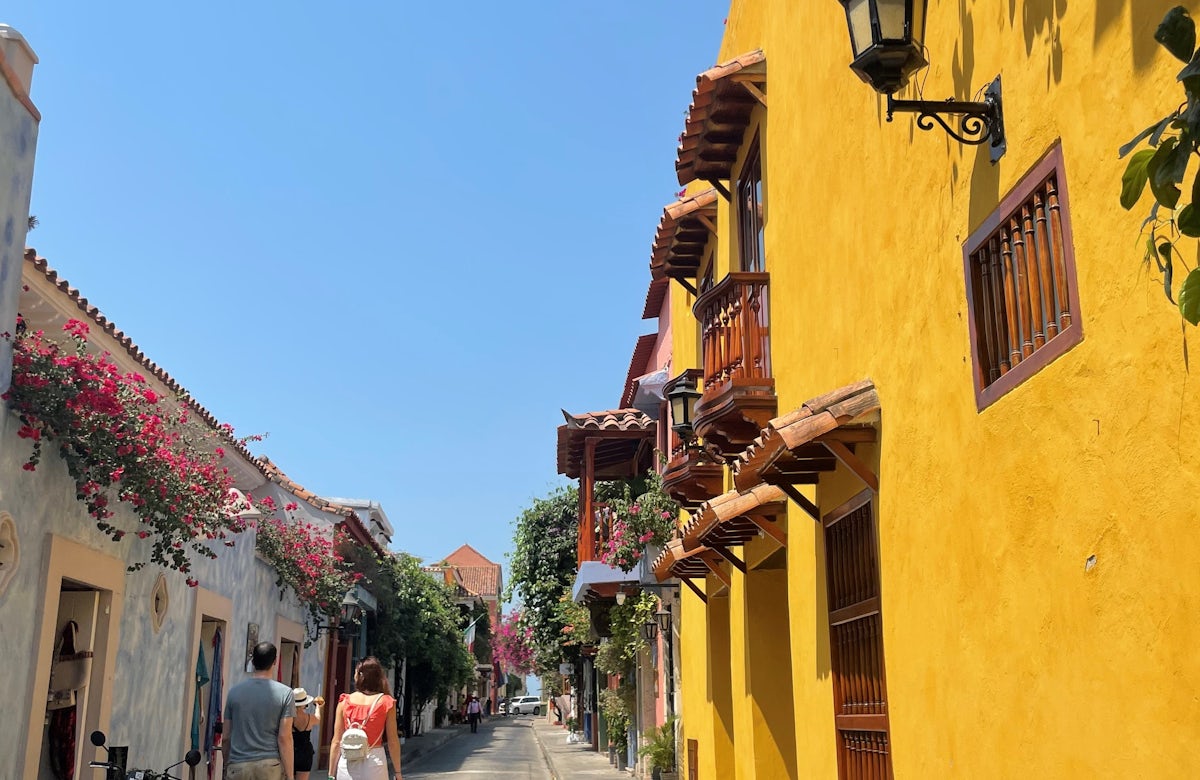This spring, along with other representatives from Jewish on Campus, the World Jewish Congress, and other Jewish organizations from all over Latin America, I attended the 2022 Summer U Latin America Conference. There, we participated in workshops teaching us important skills to advocate on behalf of the Jewish people, such as public speaking, social media, and networking, and attended lectures by renowned Jewish leaders.
My favorite part was reconnecting with other Latin American Jews, something I had never had the ability to do as an American-born Colombian Jew, but one that I had been wanting to do for years. So, as the glorious Colombian sun dipped behind the horizon, dozens of Jews sat down together and talked. It would be one of many important informal learning moments during my four days in Cartagena.
Being surrounded by large numbers of Jewish activists and having meaningful conversations is usually something that happens in the comments section of an Instagram post or in a Discord thread; but having this opportunity in person opened up the door to more meaningful, engaging, and wide-ranging discussions. We talked about the state of antisemitism in our home countries, how to recognize and combat it, and even the Jewishness of Shrek.
Before the conference, I saw everything through a very American lens and could not fathom antisemitism looking any different than the way I had experienced it. But I learned that the antisemitism my Latin American peers face is not the same kind I face in the United States.
Antisemitism in Latin America tends to be more covert, and some antisemitic stereotypes, such as “Jewish intelligence” or being good with money, are considered positive stereotypes by non-Jews. Given the significantly smaller population of Jews in Latin America, Jewish communities often face different manifestations of antisemitism and develop distinct strategies to combat it.
I knew a bit about this before the conference but meeting the actual people experiencing this antisemitism daily made that concept tangible for me. Just as the Jewish people are not a monolith, neither is the hate we face.
While I was initially somewhat nervous that I would not be accepted by the very people who could most understand my experience as a Colombian Jew, the trip was one of the most meaningful of my life. As I parted ways with my new acquaintances, I realized that not only do I finally have friends with whom to share my super niche Spanish-Jewish memes, but they also understand my story, my passions, and my struggle the way no one else can.
Yes, the entire Jewish on Campus and World Jewish Congress delegation returned home with sunburns, but we also brought back the tools and background knowledge necessary to begin dismantling antisemitism on a global scale, not just in the United States.
I know how important it is to discover your Jewish community, and I know firsthand how much stronger that can make you. Bringing Jews together to highlight our unique experiences allows us to further support Jewish communities and combat antisemitism based on their needs.
I personally came home both rejuvenated and somehow even more invigorated than I was before. Each Jew certainly is strong individually, but together, unified and supportive, is how we bring about substantial change.
In October 2021, the World Jewish Congress (WJC) and Jewish on Campus (JOC) announced a joint partnership to amplify the voices and strengthen the actions of college students who identify antisemitic occurrences at their schools. The two organizations will provide support to Jewish student communities internationally, which expands the Jewish on Campus network as well as WJC’s relationships with Jewish student communities.







